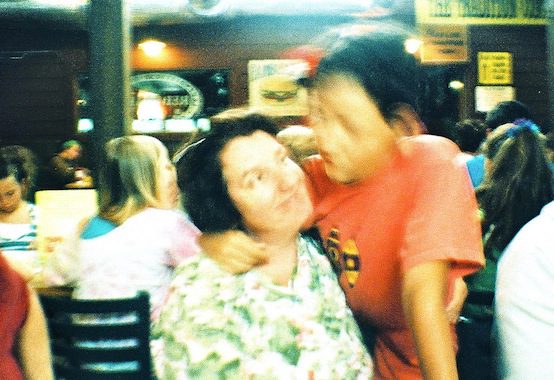Understanding Childhood: Resilience and Sensitivity

That Jason DeParle piece on single motherhood and the marriage class divide pulled together a lot of useful information and suggestive commentary in one place. But to me what was most interesting in the piece was often treated glancingly (the suggestion that the prospect of marriage helps make men marriage material) or not treated at all (our cultural norm of premarital sex; religious faith).
And of course, the children don’t speak, in part because they simply aren’t old enough and need protecting from the rough world of the New York Times front page. When adult children* do get a chance to reflect on and interpret their family circumstances, as in Michael Brendan Dougherty’s and Noah Millman’s pieces here, there’s a difficult balance to strike. There are at least two positive traits which we can bring to understanding our childhoods; only one of them really gets explicit recognition today, and they’re often pitted against one another as if only one can be allowed to matter. [*edited: I hate this phrase! Why did I use it? Sorry.]
Resilience is the trait we sort of know how to talk about. At least we’ve named it! Resilience is the quality which allows children to recover from losses and, more than that, find the gifts their losses may have given them. Resilience lets us move on, rather than getting stuck in self-defeating pain. It can provoke gratitude for what we had rather than dwelling on what we lacked. Resilience, it might be said, makes the world go ’round.
It’s basically a positive trait, a strength, but it can also be misdirected. Resilient people can become callous toward the suffering of others. Instead of thinking, “There, but for the grace of God, go I,” they think, “Why can’t you just grow up like I did?” They can also become defensively unwilling to acknowledge the losses they overcame, which may have an admirable stiff-upper-lip element on its own but often reinforces that callousness toward others.
The other trait doesn’t even have a name yet. Here I called it “aesthetic sensitivity” (scroll down to the last item), but you can think of it as an ability to discern and name the losses you experience when you’re raised outside a good-enough marriage of your biological parents. This sensitivity is often caricatured as whininess and ingratitude, and it certainly can be misdirected into those sins–memoir-generation navel-gazing, a constant chewing of the cud of one’s childhood pain.
But in its raw form it is a positive trait, a form of insight. It can provoke empathy not only for others who went through similar situations, but also for one’s own parents: Acknowledging our own losses can help us see theirs. When combined with love and gratitude it can produce some of the most honest and empathetic writing on family structure. I think both AmCon writers showed both sensitivity and resilience to a high degree, though I realize others may disagree. As for books, Elizabeth Marquardt’s Between Two Worlds: The Inner Lives of Children of Divorce shows a lot of both traits as well. (And I would note, pace Millman, that while Marquardt’s social science data can be endlessly rechewed since ceteris is never, ever paribus, the most powerful and true parts of her book come in the interviews. Mere anecdotes–stories–persuade and shape us more than numbers.)
One reason I’m convinced that these traits aren’t actually opposites is that both seem to grow with maturity. As children grow up and begin to separate their identity from that of their parents, they have to grapple with how to understand the parents’ choices, especially the ones which caused the children pain. The fearful protectiveness many children in disrupted family structures feel toward their parents tends to diminish. Sure, it’s sometimes replaced with gross and callow mom-blaming. But more often, at least anecdotally among my friends, it’s replaced with a willingness to acknowledge losses in order to move beyond them.
Parents in these family structures can take a lot of different attitudes toward both resilience and sensitivity in their children. They can wield resilience as a self-comforting truism. They can respond to expressions of loss or longing with all-consuming guilt, and/or by shaming their children. But more often, they look for ways to foster resilience.
And while I don’t know that parents should encourage a child to express loss before he or she is ready, I do think many parents strive to be open to expressions of what I’ve called sensitivity, responding in ways which acknowledge the child’s loss instead of making them feel like their reality is false (or a betrayal of their parents). ETA: I know it hurts to hear a child say he wishes he had his daddy, but the fact that he can recognize that longing and not be ashamed to tell you is actually a sign, in many cases, that you’re doing something right in your mothering.
Sensitivity doesn’t have to be a threat. And resilience is more a challenge than a solution to the problem of family fragmentation.
Comments